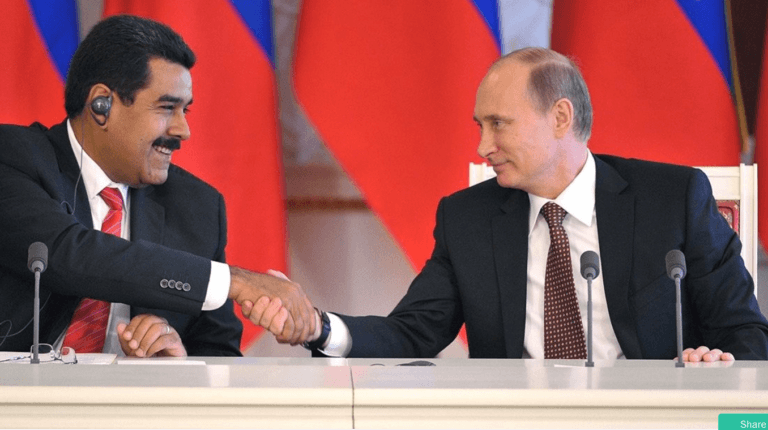Russia has not decided whether it will use Venezuela’s state-backed cryptocurrency, the Petro (PTR), to conduct hydrocarbon trade with the oil-rich Latin American country, the (also) state-backed Russian paper RIA Novosti reported recently.
As CryptoGlobe reported last week, Venezuelan president Nicolas Maduro has recently announced his intention that all Venezuelan oil will eventually be sold only in exchange for PTR tokens. The transition to the policy is said to begin in March 2019. PTR tokens are sais to be issued on the Ethereum blockchain as ERC-20 tokens. They are meant to be backed by Venezuelan oil. Their price was recently fixed at $150 per token.
Maduro announced this new initiative while on a diplomatic trip to Russia, after meeting with Russian president Vladimir Putin. His words framed an overall bilateral intent for the two countries to move away from US dollar-denominated hydrocarbon trade, saying “Russia is buying and selling oil and derivatives in [Chinese] yuan […] We are progressively going to sell all our oil production in Petros,” (translated) as quoted by teleSUR.
Russia’s Deputy Finance Minister Sergei Storchak seemed to hedge against a strong commitment to trading in Petros, however, stating:
Representatives of our tax service, the Central Bank, remained and got acquainted with the cryptocurrency, which [Venezuela] are now introducing. But no more than that. As for [solid figures], there is no such thing yet. (Translated.)
Venezuela’s Petro: a Response to Sanctions
Both Venezuela and Russia, and additionally Iran, are all experimenting with workarounds to US and Western sanctions, which have been imposed on persons and entities within all three countries.
The US has not sanctioned Venezuela’s oil industry, presumably because it does not want to be blamed for a full collapse of the nation’s economy – owing to the fact that oil is Venezuela’s most important export asset. However, the US has also outlawed dealing in Petro tokens for US citizens – and so, if Venezuela does in fact conduct its hydrocarbon trade only in PTR in future, it could prove a point of confrontation of policies.
Iran has also begun to actively develop blockchain solutions to its sanctions. The US recently muscled the Belgium-based financial messaging service SWIFT into cutting off Iranian banks, in an effort to force a renegotiation of the Iran-US nuclear deal inked in the Obama era.









